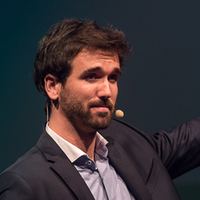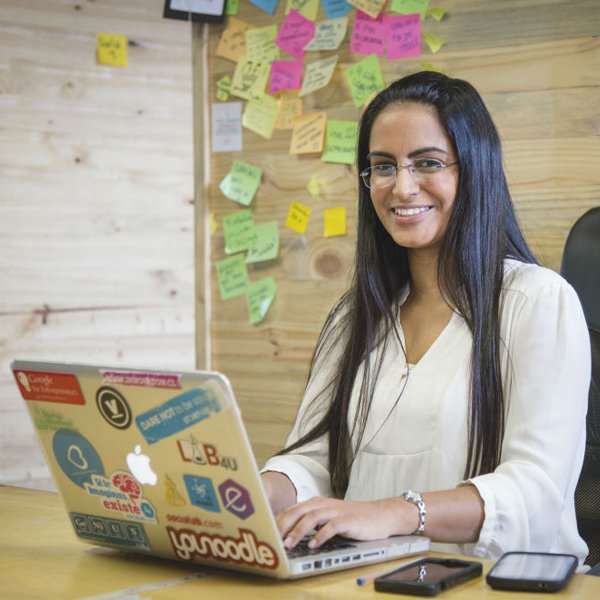R&D is responsible for advancing
the world and broadening human knowledge, yet for everyone million Latin
Americans only 509 are engaged in R&D, according to data from the World
Bank. That number is tiny when compared to 4,018 in the United States, 3,480 in
Europe and 5,389 in Japan. Part of the problem is the way in which science is
taught in Latin America. The lack of resources leads science education to focus
on theory, neglecting the more experimental side of the learning process. The
Inter-American Development Bank estimates that 88% of schools in the region
lack laboratories due to their elevated cost.
All of these conditions are leading Latin America towards scientific
illiteracy.
The app Lab4U was developed to address this situation by leveraging the
technology and sensors of smartphones and tablets to transform these devices
into small, portable laboratories. Its creator, Komal Dadlani, says that his
intention is to "democratize science and change the way science is
taught." Thanks to this visionary use of technology, Dadlani has been
recognized as one of MIT Technology Review, Spanish edition´s Innovators Under 35
Latin America 2017.
Smartphones and tablets include a series of sensors like accelerometers,
gyroscopes, magnetometers and cameras. Although these are normally used for
navigation and entertainment purposes, Lab4U transforms these mobile devices
into laboratory instruments. The project which developed the app offers three
products. Lab4Physics, the most developed product currently, includes over 30
predesigned experiments. Thanks to these experiments, "students learn
through experimenting with the movement of a pendulum, centripetal acceleration
and the difference between distance and displacement," the young Chilean
explains. Lab4Chemistry, which is still pending patent approval, converts the
digital camera into a colorimeter in order to calculate the concentration of a
solution. And Lab4Biology turns smartphones into microscopes by adding a lens
which costs one dollar (approximately 85 eurocents).
The application also offers a section focused exclusively on training educators,
which provides a low-cost solution for schools, which does not require
laboratory staff and is easy to implement. And initial tests show that
students´ grades improve by up to 40%.
Lab4U continues to expand and grow. The first pilot project was implemented in
16 schools in Chile and four in California (US), and involved the participation
of 2,000 students. Another beta project was run in Abu Dhabi (United Arab
Emirates), which currently includes 12,000 students and 2,000 teachers. Lab4U
will also be implemented in Mexico, which will elevate the total number of
users above 25,000. Though no doors are being closed, Dadlani points out that
her project has the potential to be especially useful in developing countries,
which is why she is currently working on an offline version for schools which
lack a stable internet connection.
The young innovator highlights that the most important aspects of the project
is to empower teachers and students: "no one says, 'That textbook or
software changed by life'; what people normally say is: 'That teacher taught me
to see things differently, and that changed my life'. That´s why it is so
important to us to empower those teachers who need help."
The information technologies and telecommunications research director at the
New Information Technologies Research Center at the Private Bolivian University
and jury member for the Innovators Under 35 Latin America 2017 competition,
Alex Villazón, describes Dadlani´s project as "truly attractive,
interesting and innovative" and predicts it will "almost certainly
help society through better education."




